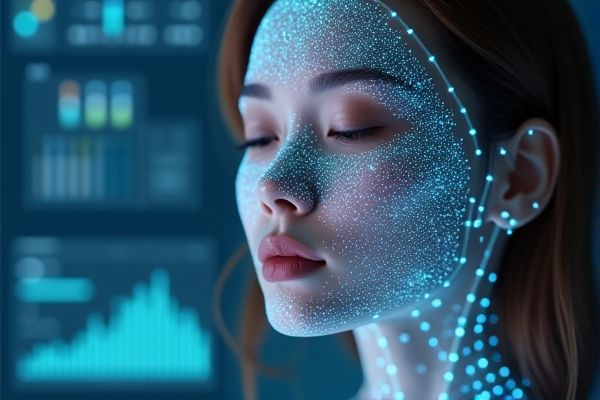
AI technology is transforming the beauty industry by providing personalized skincare and cosmetic recommendations based on individual needs. Machine learning algorithms analyze skin types, preferences, and trends, leading to customized products that enhance user satisfaction. Virtual try-on experiences powered by augmented reality allow customers to experiment with different looks before making a purchase. AI-driven analytics also help brands optimize inventory and marketing strategies, ensuring that they meet consumer demands effectively.
AI usage in beauty industry
Personalized skincare recommendations
AI technology can analyze individual skin types and conditions to provide tailored skincare recommendations. Companies like Proactiv are utilizing algorithms to enhance customer experiences and improve product effectiveness. This personalization increases the likelihood of customer satisfaction and loyalty. With the ongoing advancements in AI, the beauty industry may see even greater customization opportunities for consumers in the future.
Virtual makeup try-on
Virtual makeup try-on technology offers consumers the chance to experiment with different products and looks without the need for physical samples. Companies like L'Oreal are leveraging this technology to enhance customer engagement and personalize shopping experiences. Users can visualize how products appear on their skin tones, which may reduce the likelihood of returns and increase purchase confidence. This innovative approach has the potential to revolutionize how consumers interact with beauty products, making shopping more convenient and enjoyable.
AI-driven product development
AI has the potential to enhance product development in the beauty industry by analyzing consumer preferences and trends. For instance, institutions like L'Oreal are utilizing AI to tailor new products to specific demographics, increasing market relevance. Predictive analytics can help brands forecast successful launches, reducing the risk of product failure. This technology also enables personalized marketing strategies, making it more likely for brands to resonate with their target audience.
Beauty trend analysis
AI technology can enhance trend analysis in the beauty industry by identifying consumer preferences and emerging styles. Brands like L'Oreal utilize AI algorithms to analyze social media data, predicting which products will gain popularity. The integration of machine learning models allows for personalized recommendations based on user behavior and historical data. This approach could lead to increased customer satisfaction and loyalty, ultimately benefiting sales performance.
Skin health monitoring
AI has the potential to revolutionize skin health monitoring by providing personalized insights based on individual skin types and conditions. For instance, tools like SkinVision can analyze skin moles and spots, increasing the chances of early detection of skin issues. Predictive algorithms may enable beauty brands to tailor products and treatments, resulting in improved customer satisfaction. This technology could enhance overall skin health management by allowing users to track changes and receive guidance in real-time.
Automated customer service
AI usage in the beauty industry offers potential advantages in automating customer service. Furthermore, brands like Sephora are already employing AI chatbots to enhance customer interactions. This automation can lead to improved response times and personalized recommendations based on customer preferences. Companies may find that integrating AI technology can enhance overall customer satisfaction and efficiency.
AI-based ingredient analysis
AI-based ingredient analysis in the beauty industry offers the potential to enhance product formulation by assessing the efficacy and safety of ingredients. This approach not only streamlines the development process but also helps brands like L'Oreal create products tailored to specific consumer needs. By utilizing data-driven insights, companies can identify trends in ingredient performance and consumer preferences. This leads to the possibility of more innovative products that appeal to an increasingly informed customer base.
Virtual beauty consultations
AI usage in the beauty industry allows for virtual beauty consultations that can enhance customer experiences. This technology can analyze skin types and suggest tailored products, providing a personalized service similar to what clients might receive at a salon. Brands like L'Oreal have integrated AI tools to assist consumers in finding the right makeup shades, showcasing potential advantages in sales and customer satisfaction. The possibility of real-time feedback during consultations can lead to better product recommendations and increased customer loyalty.
Hair and style recommendations
AI can analyze individual hair types and preferences, allowing for personalized hair and style recommendations. By leveraging data from platforms like Instagram, AI can predict trending hairstyles that suit various demographics. This technology presents an opportunity for beauty salons to enhance client experiences with tailored suggestions. Implementing AI in hair consultations may lead to increased customer satisfaction and loyalty.
Market sentiment analysis
AI applications in the beauty industry include personalized product recommendations based on consumer preferences. Market sentiment analysis can provide insights into customer feedback on brands like L'Oreal, allowing for improved marketing strategies. Companies can leverage this data to anticipate trends and align their offerings with customer desires. This proactive approach may enhance customer engagement and potentially increase sales.
 techknowy.com
techknowy.com